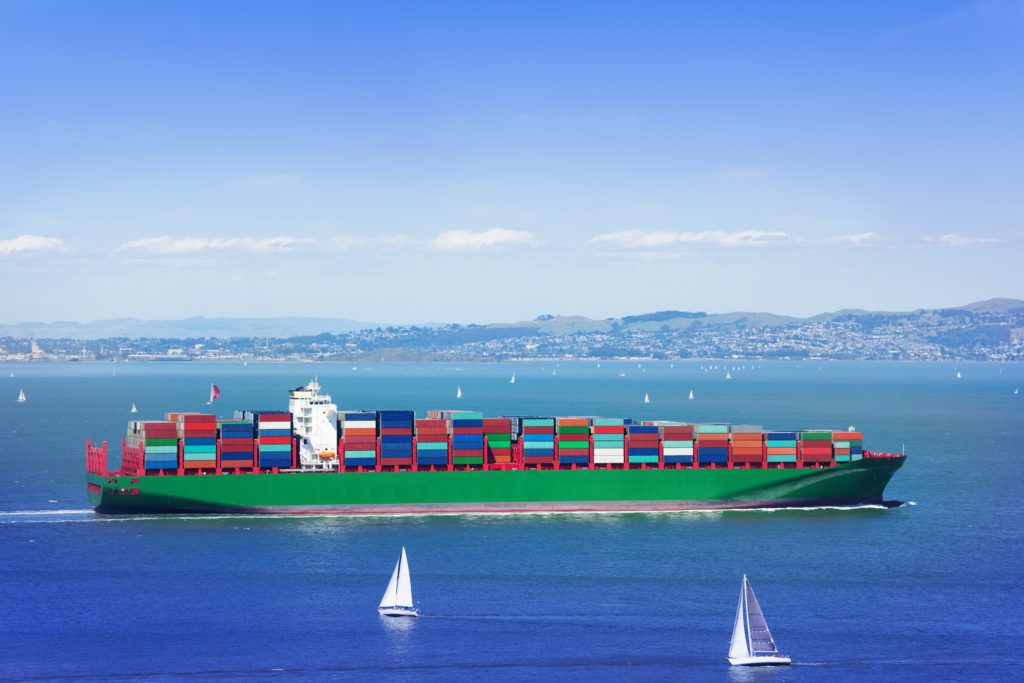Section 301
Trade Remedy Duties – Section 301
Trade Remedies to be Assessed on Certain Products from China
Section 301 procedures apply to foreign acts, policies, and practices that the United States Trade Representative (USTR) determines either (1) violate, or are inconsistent with, a trade agreement; or (2) are unjustifiable and burden or restrict U.S. commerce.
Section 301 tariffs were imposed on Chinese products in response to the investigation of the Office of the United States Trade Representative (USTR) that found the government of China was engaging in unfair trade acts, policies, and practices related to the unreasonable and discriminatory transfer of American technology, intellectual property, and innovation. This is a group of tariffs to be assessed on certain products from China. Unlike Section 201 that allows companies and industries to petition the U.S. International Trade Commission (ITC) that their industries are being unfairly harmed by foreign products, Section 301 did not require specific petitions from domestic companies. Consequently, the United States has implemented three rounds of tariff increases on a total of $250 billion worth of Chinese products, while China has increased tariffs on $110 billion worth of U.S. products.
Section 301 duties only apply to products of China, and are based on the country of origin, not country of export. These duties are eligible to be refunded through drawback when the product is exported.
Please monitor CBP website frequently for the most current information: Section 301 Trade Remedies to be Assessed on Certain Products from China
In-Depth Coverage: Trade Remedies
Section 301 and Foreign Trade Zone (FTZ)
How are goods subject to Section 301 duties treated when they are admitted into a foreign trade zone (FTZ)?
Products that are subject to the additional duty imposed by Section 301 and are admitted into a U.S. foreign trade zone on or after 12:01 am eastern daylight time on July 6, 2018, (for products on the June 20 list), August 23, 2018 (for products on the August 16 list), or September 24, 2018 (for products on the September 21 list) only may be admitted as ‘privileged foreign status’ as defined unless eligible for admission under domestic status. Such products will be subject upon entry for consumption to any ad valorem rates of duty or quantitative limitations related to the classification under the applicable HTSUS subheading. Products covered by the Section 301 remedy that were admitted as privileged foreign status prior to the relevant effective date, will not be subject to the additional duties.
Privileged Foreign Status
As a privileged foreign status, the merchandise will be treated, for tariff purposes, in its condition at the time of admission to the zone, although the choice of that status need not be exercised at the time of admission. The election of privileged foreign status may be made after merchandise has been admitted to the zone provided that the merchandise has not been manufactured or manipulated in any way which may have effected a change in tariff classification.
Section 301 and Section 321 Administrative Exemption
Are products entered under the Section 321 de minimis exemption subject to Section 301 duties?
Section 321 de minimis administrative exemption admits free from duty and tax, shipments of merchandise (other than bona fide gifts and certain personal and household goods) imported by one person on one day having an aggregate fair retail value in the country of shipment of not more than $800. Goods properly entered under Section 321 are not subject to Section 301 duties.
However, please note that a formal entry is required if a shipment contains merchandise subject to AD/CVD. Goods subject to AD/CVD do not qualify for Section 321.
Section 301 and Sets
How are the Section 301 duties assessed with respect to sets packaged for retail sale, which contain components covered by the Section 301 remedy?
When importing goods put up in sets for retail sale (in accordance with General Rule of Interpretation 3) that contain articles subject to the Section 301 remedy, if the product that imparts the essential character to the set (i.e. the HTSUS provision under which the entire set is classified) is covered by the Section 301 remedy, then the entire set will be subject to the additional 25% duties.
If the HTSUS provision under which the entire set is classified is not covered by the Section 301 remedies, but the set contains components that are classified in a subheading covered by the 301 list, the 301 duties will not be assessed on the individual components.
If the essential component of an article set (X line) is subject to a trade remedy, the applicable chapter 99 number should be reported on the X line with appropriate duty reported. If the article set V line is subject to a trade remedy, the applicable chapter 99 number should still be reported on the V-line, with duty reported as zero.
Section 301 and Chapter 98
Are the Section 301 duties owed on entries in which a claim under Chapter 98 is made?
The additional duties imposed by headings 9903.88.01 through 9903.88.04 do not apply to goods for which entry is properly claimed under a provision of chapter 98 of the HTSUS, except for goods entered under headings 9802.00.40, 9802.00.50, 9802.00.60, and 9802.00.80.
For headings 9802.00.40, 9802.00.50, and 9802.00.60, the additional duties apply to the value of repairs, alterations, or processing performed abroad, as described in the applicable heading. For heading 9802.00.80, the additional duties apply to the value of the article less the cost or value of such products of the United States, as described in heading 9802.00.80.
When submitting an entry in which a heading or subheading in Chapter 98 is claimed on merchandise covered by the Section 301 remedy, the following instructions will apply.
When submitting an entry using a Chapter 98 provision that normally requires the reporting of a secondary Chapter 1-97 HTSUS classification, a filer must first report the applicable chapter 98 provision, then subheading 9903.88.01, 9903.88.02, 9903.88.03, or 9903.88.04, as applicable, followed by the applicable Chapter 1-97 HTSUS classification for the commodity being imported.
Please monitor the CBP website frequently for the most current information: Trade Remedies
In-Depth Coverage: Country of Origin
- Country of Origin of Imported Merchandise
- Customs Ruling: Country of Origin
- Country of Origin: Food Products
- Country of Origin: Chemical and Pharmaceutical Products
- Country of Origin & Country of Manufacture: CBP vs. FDA
- Country of Origin: Substantial Transformation or Country of Assembly Test
- Country of Origin and Free Trade Agreement
- Country of Origin and Section 301
In-Depth Coverage: USDA-Regulated Products
- Importing USDA-Regulated Food Products
- Import Regulation by USDA Agricultural Marketing Service (AMS)
- Food Products – FDA or USDA Regulated
- Country of Origin Labeling
- Importing Animals, Animal Products, and Biologics into the US
- Importing Meat, Poultry, and Egg Products into the US
- Labeling and Marking of Imported Meat, Poultry, and Egg Products
- USDA National Organic Program (NOP)
- Agricultural Safeguards and USDA Licensing
In-Depth Coverage: Importing Medical Device
In-Depth Coverage: Importing Food Products
- What is FDA Food Safety Modernization Act (FSMA)?
- Prior Notice of Imported Foods
- FDA Food Facility Registration
- Risk-Based Preventive Controls for Human Food
- Risk-Based Preventive Control for Animal Food
- Protect Food against Intentional Adulteration
- What is Foreign Supplier Verification Program (FSVP)?
- What is FSMA Produce Safety Rule?
FDA-Regulated Products and Import Requirements
- What is Food Safety Modernization Act (FSMA)?
- Prior Notice of Imported Foods
- Food Facility Registration
- Risk-Based Preventive Controls for Human Food
- Risk-Based Preventive Control for Animal Food
- Standards for the Growing, Harvesting, Packing, and Holding of Produce for Human Consumption
- What is Foreign Supplier Verification Program (FSVP)?
- Protect Food against Intentional Adulteration
- FDA Regulated Product in Foreign Trade Zone (FTZ)
- Entry Review Process for FDA Regulated Products
- Country of Origin VS Country of Manufacture
- Foods Regulated by FDA or USDA: What is the Difference?
- Label and Labeling Claims for Conventional Food and Dietary Supplements
- What is USDA Country of Origin Labeling (COOL)?
- Import for Export of FDA Regulated Products
- FDA Regulated Products in Personal Baggage or Sending by Mail or Courier
- International Mail Facility (IMF) and FDA Regulation
- Importing Biological Product Regulated by CBER
- Importing Cosmetics and Voluntary Cosmetic Registration Program (VCRP)
- Importing Drugs into the U.S.
- Importing OTC Drugs into the U.S.
- Importing Veterinary Drugs into the U.S.
- Importing Tobacco Products into the U.S.
- Importing Medical Devices into the U.S
- Importing Food Products into he U.S.
- Importing Radiation-Emitting Products into the U.S.
Customs Clearance and Import Requirements
- Entry of Imported Merchandise
- What is Section 321 Entry?
- What is Automated Commercial Environment (ACE)
- What is an Automated Broker Interface (ABI)?
- Who is Ultimate Consignee?
- What is Non-Resident Importer Program?
- Country of Origin of Imported Merchandise
- What is the Country of Assembly?
- What if the FDA's Country of Manufacture?
- Marking of Country of Origin on U.S. Imports
- What is Customs Bond?
- Reconciliation Prototype and Bond Rider
- Who Needs a Customs Broker?
- What is Customs Ruling Program?
- Classification of Imported Goods
- How is imported merchandise appraised?
- What are Import Quotas?
- What are Trade Remedy Duties?
- Antidumping Duty (AD) and Countervailing Duty (CVD)
- What is Foreign Trade Zone (FTZ)?
- What is Importer Security Filing (ISF)?
- What is Temporary Importation under Bond (TIB)
- What is In-Bond Process?
Guidance on customs & logistics solution for traditional and e-commerce importers and exporters
Importer Security Filing (ISF)
An ISF is required when cargo (ocean only) laden on vessel at a foreign port is destined for shipment to the U.S. Under ISF rule, some importing information and details regarding cargo must be transmitted to the CBP at least 24 hours before goods are loaded onto the vessel.
Freight Forwarding
Looking for a freight forwarding partner? To move your cargo from its current location through customs to its final destination we will partner with you to find the best way for your business. Whatever your transportation, logistics and customs clearance need, we will do our best to customize a solution for your needs.

Customs Clearance
All goods imported into the U.S. are required to be declared to CBP. Our customs broker will help you stay in compliance with customs laws and regulations and clear your goods quickly and efficiently with our electronic Automated Commercial Environment (ACE) and Automated Broker Interface (ABI) Single Window System.
Warehousing & Distribution
Our warehouse facility offers great potential for serving as a regional hub with over 145,000 SF storage capacity close to Los Angeles Airport & Los Angeles/Long Beach Sea port. With our extensive experience in freight services, your import/export cargo will be handled quickly and effectively.
Section 321 Entry
Section 321 entry allows importing free of duty and tax for shipments imported by one person on one day having a fair retail value in the country of shipment not more than $800. We provide our resident and non-resident clients with dedicated ACE eManifest solutions for Section 321 entry of all modes of transportation.
Non-resident Importer Program
If you want to sell your products in U.S. marketplaces, but you are a business owner located outside of the U.S. and do not have an entity or presence in the U.S., you need to be established as a Foreign Importer of Record before your products can be imported into the U.S. We can help you.
Quick Link To U.S. Customs & Import Requirements















